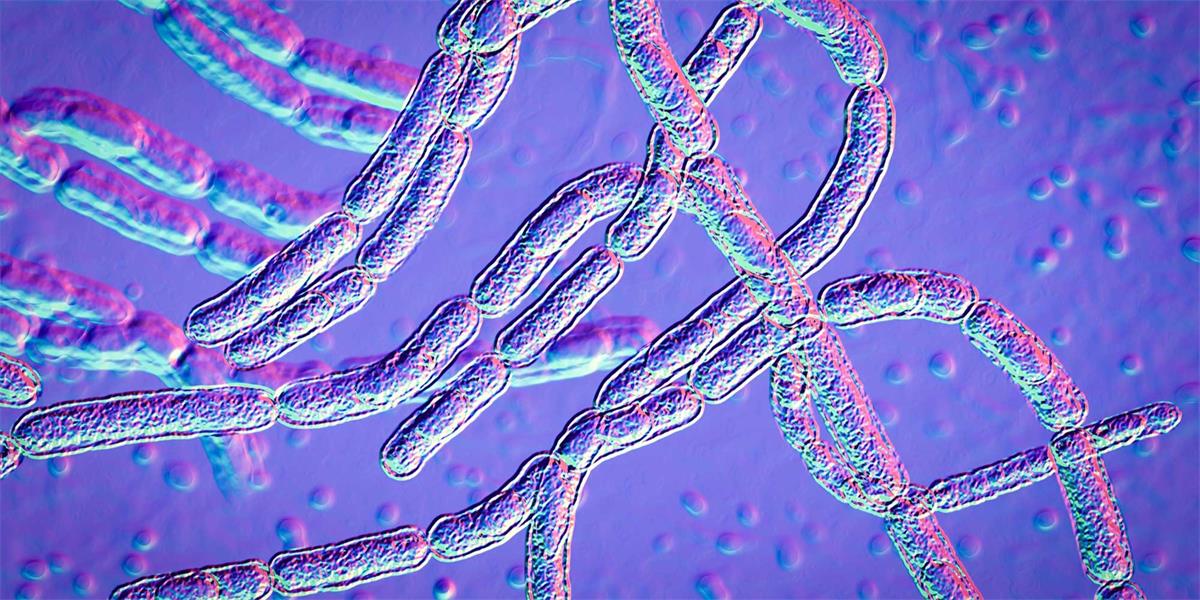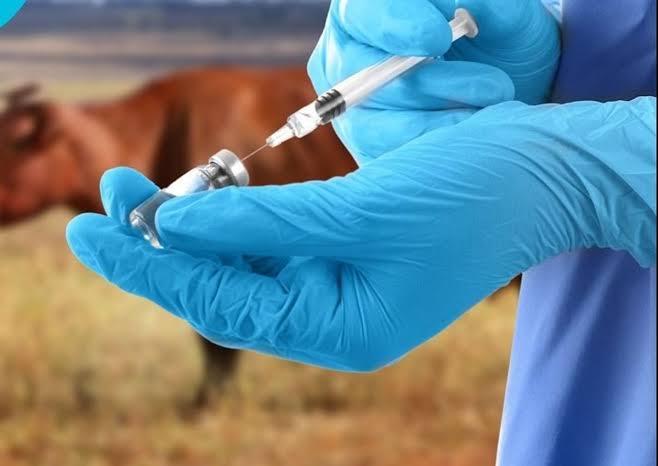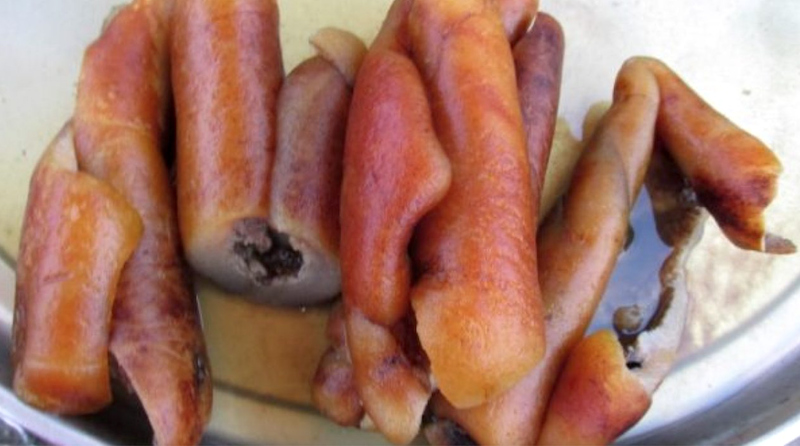There was palpable fear on the floor of the House of Representatives on Tuesday as lawmakers deliberated on the recent outbreak of Anthrax in the country.
TheNewsGuru.com (TNG) reports the outbreak of Anthrax was discovered in a farm at Gajiri Village, in Niger State.
The House in its resolution directed relevant government agencies to arrest the outbreak.
This followed a motion of urgent public importance by Rep Adamu Tanko (PDP-Niger) on the floor of the House in Abuja on Tuesday.
In the motion, Tank noted that the report of the Federal Ministry of Agriculture and Rural Development concerning the presence of anthrax in Nigeria was disturbing.
He said the laboratory test conducted on the collected samples by the Navonal Veterinary Research Institute, confirmed the first reported case at a livestock farm.
He said similar cases of the diseases were confirmed in Northern Ghana, Burkina Faso and Togo with symptoms, including sudden death and blood oozing from natural body openings
These include: nose, ear, mouth, and anal region and spread through affected livestock, bush meat, and contaminated environments.
He expressed concern over the potential spread of the disease to other livestock farms in the country and its possible impact on public health,
He said Anthrax might affect humans in direct contact with affected animals and contaminated products, with potential inhalation, through spores or wounds.
He said there was need for proactive measures to prevent spread of Anthrax in Nigeria and protect the health and livelihoods citizens by placing public health precautions in place.
He called for strict surveillance and monitoring of livestock farms, as well proper disposal of infected animals and contaminated materials.
He commended the efforts of the Federal Ministry of Agriculture and Rural Development in addressing the issue.
This according to him was by implementing necessary measures to contain the spread of Anthrax and protect both livestock and human health.
Adopting the motion, the House urged the Federal Ministry of Agriculture and Rural Development to collaborate with relevant stakeholders in implementing effective surveillance, vaccination.
Others include awareness campaigns to contain the outbreak and provide adequate resources and support to affected communities, including compensation for losses incurred due to the outbreak.
The House also urged the National Centre for Disease Control to put in place measures that will stop the further spread of anthrax.
The House also mandated the committees on Agricultural Production and Services | and Legislative Compliance when constituted to monitor.
The Federal Government confirmed the first case of Anthrax in Nigeria after disclosing on Monday that the disease was detected in a farm in Niger State.
Making this known in a statement, the Federal Ministry of Agriculture and Rural Development said that it “is deeply concerned to announce the confirmation of an anthrax case in Niger State, Nigeria.”
It added that “On July 14, the Office of the Chief Veterinary Officer of Nigeria was notified of animals manifesting symptoms of a suspected case of anthrax in a farm in Suleja, Niger.
“The case was in a multi-specie animal farm comprising of cattle, sheep and goats located at Gajiri, along Abuja-Kaduna expressway Suleja LGA Niger State, where some of the animals had symptoms including oozing of blood from their body openings – anus, nose, eyes and ears.
“A Rapid Response team comprising of federal and state One Health Professional Team visited the farm to conduct preliminary investigations and collected samples from the sick animals.
NCDC reveals ideal method of disposing anthrax carcass
Meanwhile, the Nigeria Centre for Disease Control and Prevention (NCDC) has disclosed the ideal method of disposing of an anthrax carcass is incineration.
The Director-General of NCDC, Dr Ifedayo Adetifa, disclosed this in Abuja on Tuesday, stressing that where this method was not possible, deep burial was the alternative.
The Federal Government, through the Federal Ministry of Agriculture and Rural Development, on Monday, officially confirmed the first case of anthrax in the country.
A statement signed by the Chief Veterinary Officer of Nigeria, Dr Columba Vakuru, said animals were showing signs of a possible case of anthrax on a farm in Suleja, Niger State.
He said that it was reported to the Office of the Chief Veterinary Officer of Nigeria on July 14, 2023.
According to Adetifa, livestock farmers in the disposal of anthrax infected carcass, they should ensure that the pit is 6–8 feet, two mitre deep – the bottom of which should be well above the water table (minimum 3 feet (0.9 m ).
“Considering the water table level and soil composition clay soil is preferable, whereas, sand or gravel should be avoided,” he advised.
Adetifa said that anthrax was a contagious and highly fatal zoonotic bacterial disease affecting primarily herbivores.
He said that the clinical symptoms seen in animals infected with anthrax included high fever at the start of the infection, then restlessness, convulsions, and death.
“Not infrequently, livestock die suddenly without clinical symptoms.
“Some easily spotted clinical symptoms include bleeding from the orifices, such as ears, nose, and mouth,” he said.
He said that mortality can be very high, especially in herbivores.
He said that the disease has a worldwide distribution and was a zoonosis.
“The etiological agent is the endospore-forming, Gram-positive, non-motile, rod-shaped Bacillus anthracic. And has an almost worldwide distribution.
“Once introduced into an area, anthrax is maintained in the environment by resistant spores that may remain dormant in the soil for many years.
“Spores are more likely to persist in areas with ideal soil conditions alkaline, calcium-rich,” he said.
According to him, Anthrax is a re-emerging infection and consequently, endemic areas may provide additional sources of alternative strains of B. anthracic for bioterrorism placing global security at renewed risk.
He urged livestock farmers to report suspected cases of the disease at their livestock farms, cattle markets and other areas with the aforementioned symptoms of Anthtax.
He said that Nigerians should be vigilant and report any unusual happenings, such as sickness or sudden death of animals on their farms.
He advised animal owners to intensify efforts on annual vaccination of their animals and proper disposal of infected dead animals by burying them deep in the soil after applying disinfectant chemicals.
The NCDC boss advised Nigerians to refrain from consuming the meat of livestock infected with anthrax.
“This is because boiling the meat for hours will not kill the bacteria.
“Once the spore is inhaled, people usually experience death within 24 hours,” he advised.
He said that all of these infectious diseases have emphasised the importance of hand washing with soap to reduce the spread of diseases.
He said that the majority of germs that caused serious infections in humans were transmitted by people’s actions.
He said that the promotion of hand hygiene was one of the cost-effective public health interventions for the prevention and control of infections, particularly those caused by epidemic-prone pathogens.
According to him, it is important for Nigerians, particularly nurses, doctors, and healthcare technicians, who are in direct contact with people, to practise hand hygiene practices to avoid being infected by any type of disease whatsoever.
The World Health Organisation explains anthrax to be primarily a zoonotic disease in herbivores caused by a bacterium called Bacillus anthracis.
The bacteria live in the soil and usually infect wild and domestic animals, such as goats, cattle and sheep.
Anthrax outbreaks are fairly common worldwide and mostly affect agricultural workers.
Humans become sick with the disease by handling animal products such as wool, hide or bone from animals infected with the anthrax bacterium.





